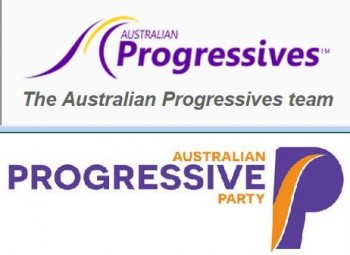New Progressive parties offer hope

Two new Progressive political parties offer hope for change in Australia’s political governance.
For too long the country has laboured under the influence of what can only be loosely described as Left and Right political philosophies. Those philosophies have never been rigidly fixed and — since the mid-’70s — have been shifting.
Today we have the Liberal Party of Australia reaffirming Margaret Thatcher’s dry economics of some decades ago while at the same time echoing the nutty and radical Tea Party faction of the USA’s Republican party and even beginning to resemble a neoFascist State with increasingly Draconian limitations on freedoms and a cacophony of dog whistling. It resembles a three-ring circus.
Then we have the Australian Labor Party, drifting further and further to the Right under the rudderless leadership of a limp lettuce leaf — to the dismay of its rusted-on Left wing who cry out for reform because they don’t have the wits to look around for an alternative.
On the ABC’s RN Breakfast show this morning former Liberal Prime Minister John Howard said for decades Australian voters had been divided about 40-40% Liberal and Labor, with the remaining 20% swinging in the breeze. This had recently changed, he said, to 30-30%, with a larger 40% of swinging voters. This 40% — some of which is taken up in a bewildering array of small and usually special interest parties — holds the keys to the outcome of future elections.
There is little hope that either Liberal or Labor are going to change any time soon.
Two new parties — Australian Progressive Party and Australian Progressives do offer hope for a significant change in Oz politics. While avoiding the term Centrist, they claim they will govern for all Australian interests. Appealing to most of that 40% will not be enough — they will have to get votes from the 60% Lib/Labor who are rusted on to their historical favourites.
And they are not the only new parties. There is the Pirate party, with a clear agenda and broad policies, but an unfortunate name choice that conjures up an image of the skull and crossbones and all that goes with that.
Two versions of the Australian Democrats are maneuvering. Australia’s greatest political tragedy, I think, because AusDems seems to be just what this country needs.
And, of course, there is the Greens. They also have a broad range of policies, much broader than most realise because most don’t take the trouble to look. Here is a list of references to the bigger political parties’ policies. The Greens probably suffer the most from a bad Press.
Indeed, the bad Press — the news media in general, commercial and public funded — is the real holder of the keys that unlock the minds of the 40% and the other hangers-on.
Without getting the news media on side, all of these new political parties stand little chance of immediate success — even if they do appeal to the disaffected inhabitants of social media, whose numbers are small.
Another problem to be overcome is recruitment. A few months ago I launched The Centre Party of Australia, initially named The Third Party as a working title. Recruitment was too slow, but I think I gave up too easily. I came to the conclusion (rightly or wrongly) that people no longer commit themselves to political parties — another sign of disaffection with existing parties.
The most active people who signed on wanted to organise the structure and the policies. That was interesting for a while, until you realise that without members — and lots of them — you are organising only to avoid washing the dishes or doing some gardening.
Water under the bridge, but a useful learning exercise. I firmly believe that the federal election of 2016 will be the best opportunity in a very long time* for any new political party to really smash through and grab dozens of seats. A solid grass roots organisation working in several dozen carefully chosen electorates will do the job. Cathy McGowan’s campaign for the Victorian federal seat of Indi provides the model. Incumbent Sophie Mirabella won the primaries by a long shot, but the campaigning of McGowan’s supporters won the preferences and the seat by a margin of about 435 votes.
* I say it’s the best opportunity because Liberal leader Tony Abbott’s ideological wrecking ball has only swung through the scenery once and there’s much more to come. I can’t see how he’ll pull the wool over the electorate’s eyes a second time (damn them to hell if he does). And Labor has allowed itself to be cuckolded to such an extent that many people I have come to know and thought were rusted on are beginning to see the light and are looking for a change.
Getting the news media on side remains the greatest challenge. It will take nothing less than an internal revolt — something like the protest staged by the editorial staff of The Australian in protest against owner Rupert Murdoch’s campaign directives against Gough Whitlam in the mid-’70s. And it’s not just the news media that needs to be tamed, woken up or pulled towards the centre. It’s the morning talk shows, the panel shows, the couch sessions and even the comedians — all capable of tearing a political party to pieces.








